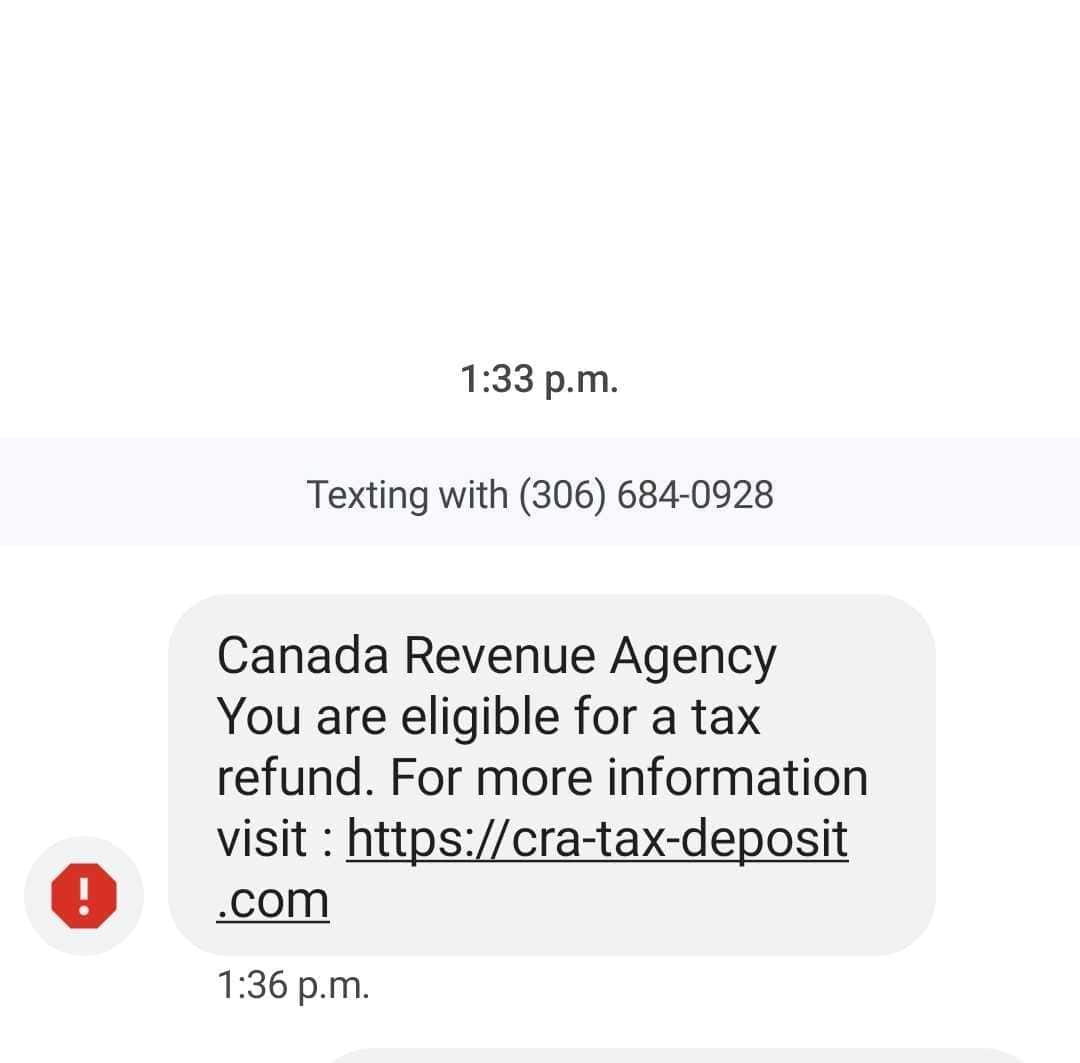New CRA tax refund scam hits Ontario
Published November 19, 2023 at 12:07 pm

A recent scam making the rounds in Mississauga, Brampton, and surrounding areas seems to mimic a Canadian government payment alert.
Just as the final batch of benefit cheques from the Canada Revenue Agency (CRA) are sent out for the year— in time for the holiday season, it appears scammers are gearing up to launch their next deceptive ploy.
The fraudulent communication takes the form of a text message, identifying as the CRA, informing the recipient that they are eligible for a tax refund.

This seems to be a standard phishing scam, where the perpetrator is enticing individuals with the promise of a refund or monetary gain to illicitly obtain personal information.
In all such fraudulent schemes, the underlying message is clear, as highlighted by the Canada Anti-Fraud Centre on its website: “an attempt to deceive you into divulging your personal or financial information.”
Clicking on the provided link or attachment poses the risk of infecting your device with a virus or malware.
Payments like these typically originate from the CRA, but it’s crucial to recognize that the government explicitly states they do not issue notifications through text messages.
“The CRA will not use text messages or instant messages to start a conversation with you about your refund,” emphasizes the Canada Revenue Agency on their website. If you qualify, payments will be automatically processed through mail or direct deposit, as outlined by the CRA.
In this specific scenario, individuals may note that the area code (306) of the phone number which the text message was received, points to its origin in the province of Saskatchewan.
Before clicking on any links, it might be a good idea to conduct an online search to verify the accurate contact number for the appropriate CRA department. In this case the tax refund inquiries line is 1-888-863-8657.
The Canadian Anti-Fraud Centre provides the following guidance to assist in averting individuals from becoming victims of such scams:
- Don’t click on links from unsolicited messages
- Don’t download attachments from unsolicited messages
- Watch for spelling mistakes
- Don’t trust a message just because the email address looks legitimate; fraudsters can spoof the address
- Beware of messages claiming to be from the Government of Canada or a law enforcement agency; they will never contact you to offer funds via email or e-transfer
For more information, see the Canadian Anti-Fraud Centre website.
INsauga's Editorial Standards and Policies



